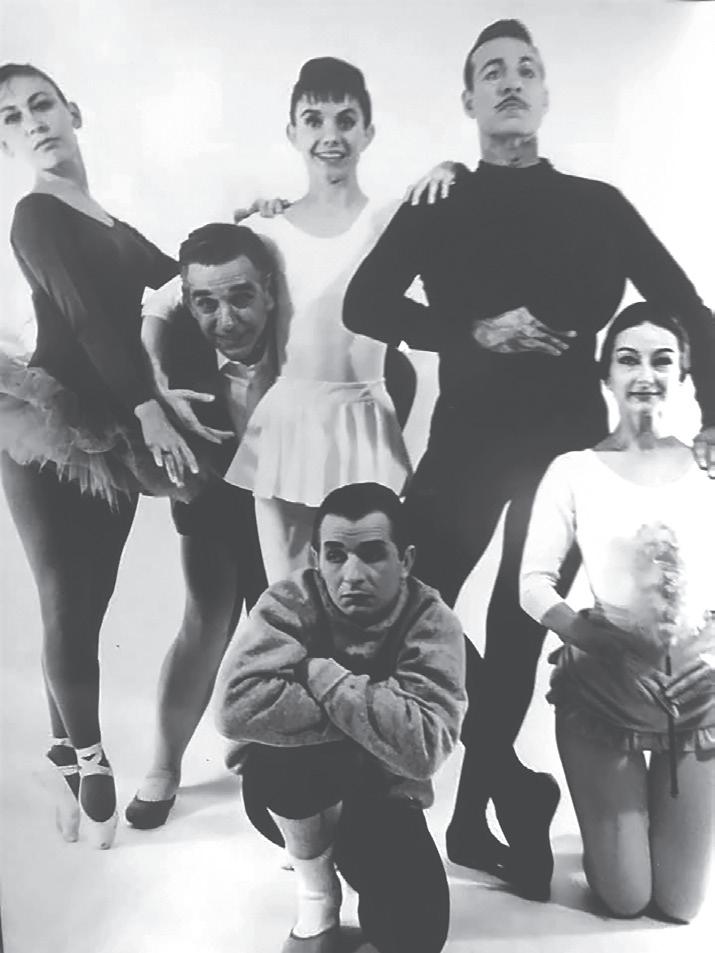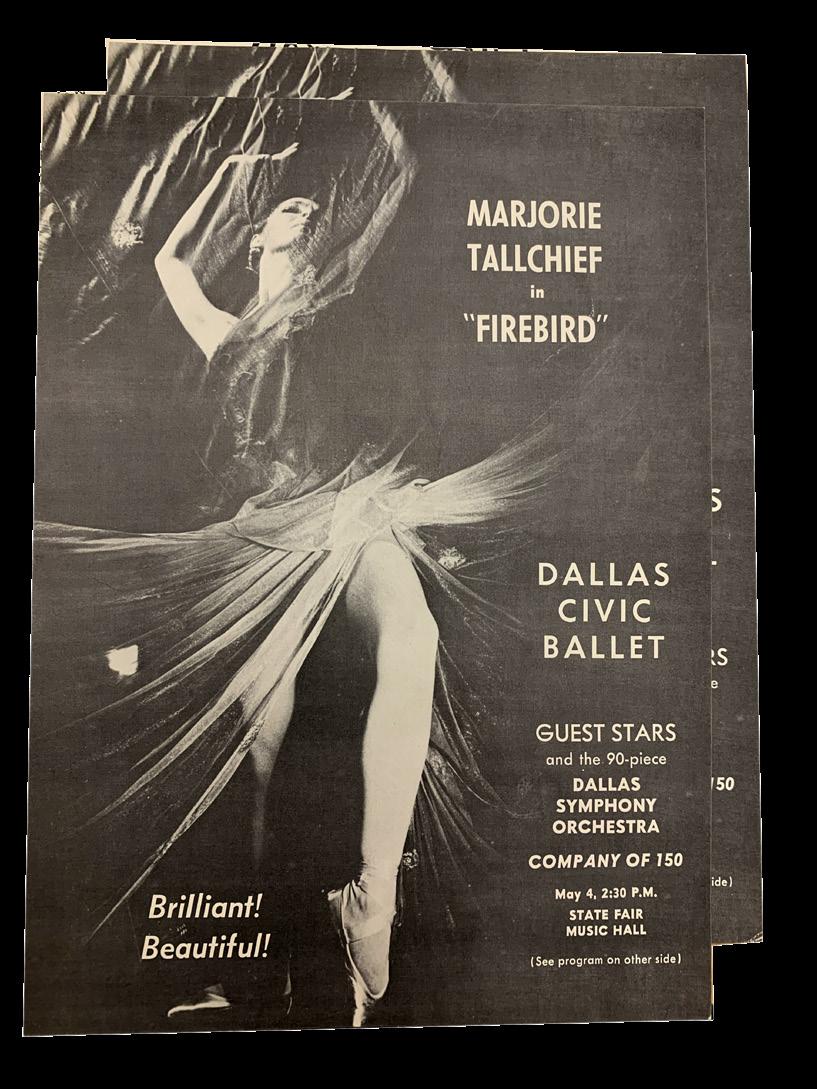
5 minute read
TEACHERS, MASTER CLASSES & GENERATION GAP
Over Conflicting Perspectives
the terms topic that I’ve feel that I’d with one But I read of every was dealing. the older teachers actually listening editor John describe believed can create makes their the title reels and them the participants in proclaiming that classes as training” and stating that anything; solely on the there are “Master reserved produced consensus among Instagram bestowing the teachers themselves master teachers; that this label should be reserved for the absolute very best, legendary teachers in our industry. This sentiment lead some of the younger participants to call these older teachers “angry” and “insecure” which then led to more name calling including “entitled” and “moron”. It was clear to me that much of the arguing (there was a lot) and much of the name calling (there was a lot) was due to the fact that most of the participants were not really reading and “listening” (for lack of a better word) to the differing opinions. There has always been a “Generation Gap” and there will always be a generation gap. But what I find so interesting is: Why is it so large and difficult to bridge with respect to this topic? I am aware that what follows deals in broad generalizations and there are always going to be individuals who don’t conform to this discussion.
Advertisement
I think a lot of this gap in understanding has to do with the culture in which each of us has been raised. When I was a child we were not raised to believe that we were special; in fact our parents, and society at large, went out of their way to be sure that we understood that we were NOT special. I think that the goal was to raise us to have a sense of determination, a strong work ethic and a genuine humility in how we carried and conducted ourselves. I believe that they wanted us to understand our “place in the world”. And for the most part it seems to have worked. Most of the older teachers in the discussion and quite frankly, most of the older teachers I know, fit this profile and exhibit these traits; traits that are considered admirable and among the hallmarks of good parenting. Today’s younger teachers were raised in a completely different environment. This generation was raised to understand that they WERE special. They were raised to know that they deserved to have their dreams fulfilled. They were raised to know that they could achieve whatever they hoped to achieve.
I think that the goal was to raise them to have good self esteem, confidence in their abilities, and a sense of optimism with respect to their futures. And for the most part it seems to have worked. Most of the younger teachers in the discussion as well as most of the younger teachers I know, exhibit these traits; traits that are considered admirable and among the hallmarks of good parenting.
I’m clearly speaking in broad generalizations and there are many “shades of grey”; there are obviously going to be many individuals who don’t fit this model. But I believe that there is a lot of truth in the differences I’ve outlined. I’m also not saying that one way of being raised is better, more valid, or yields a better result than the other; they simply yield a different result. And so here we stand. We have the terms “Master Class”and “Master Teacher”. These terms clearly confer a certain level of status or “specialness” on those to whom they are applied; a status that one group “knows” that they, themselves deserve while another group “knows” that they, themselves do not. And if we proclaim what we “know” about ourselves without understanding why we feel that way, and if we fail to listen to what others “know” about themselves without trying to understand where these feelings originate, we come to this impasse.
Perhaps some of the teachers of my generation should try to look at their work and themselves with a little more objectivity. Maybe we aren’t really owning who we are, what we bring to the table and what level of mastery we, as individuals, truly possess. And likewise, perhaps some of the younger teachers should try to look at their work and themselves with a little more objectivity and try to have a deeper understand of where they truly fit within the scheme of the industry. But more importantly, maybe we all should try to look more objectively at our colleagues on the other side of this generation gap and maybe we all might learn something and come to a better understanding.
Now, back to the crux of the matter: the terms “Master Class” and “Master Teacher”. I stated my opinions on the bestowing of these terms in the aforementioned discussion thread and most of my readers already know (or can surmise) where I sit on this topic. I have some very strong opinions on this: classicalballetandallthatjazz.com/2016/12/22/masterteachers-and-master-classes/. But MY opinion is not germane to this discussion. Language is fluid. Slang expressions are constantly creeping into regular usage. The nuance of word meanings changes over time. So maybe “Master Class” can be synonymous with “special class” and maybe “Master Teacher” can be synonymous with “guest teacher”. And maybe not. And maybe if we didn’t attach so much specialness to the word “Master”we could all go back to arguing about dancing with one shoe.
Bill Waldinger is based in New York City and teaches primarily at the Joffrey Ballet School, Ballet Academy East, and is on the faculty at the New York Film Academy. This entry appeared on his online blog “Classical Ballet and All That Jazz” on July 24, 2023. You can follow him at: facebook.com/william.waldinger.
DEADLINE: OCT 15, 2023
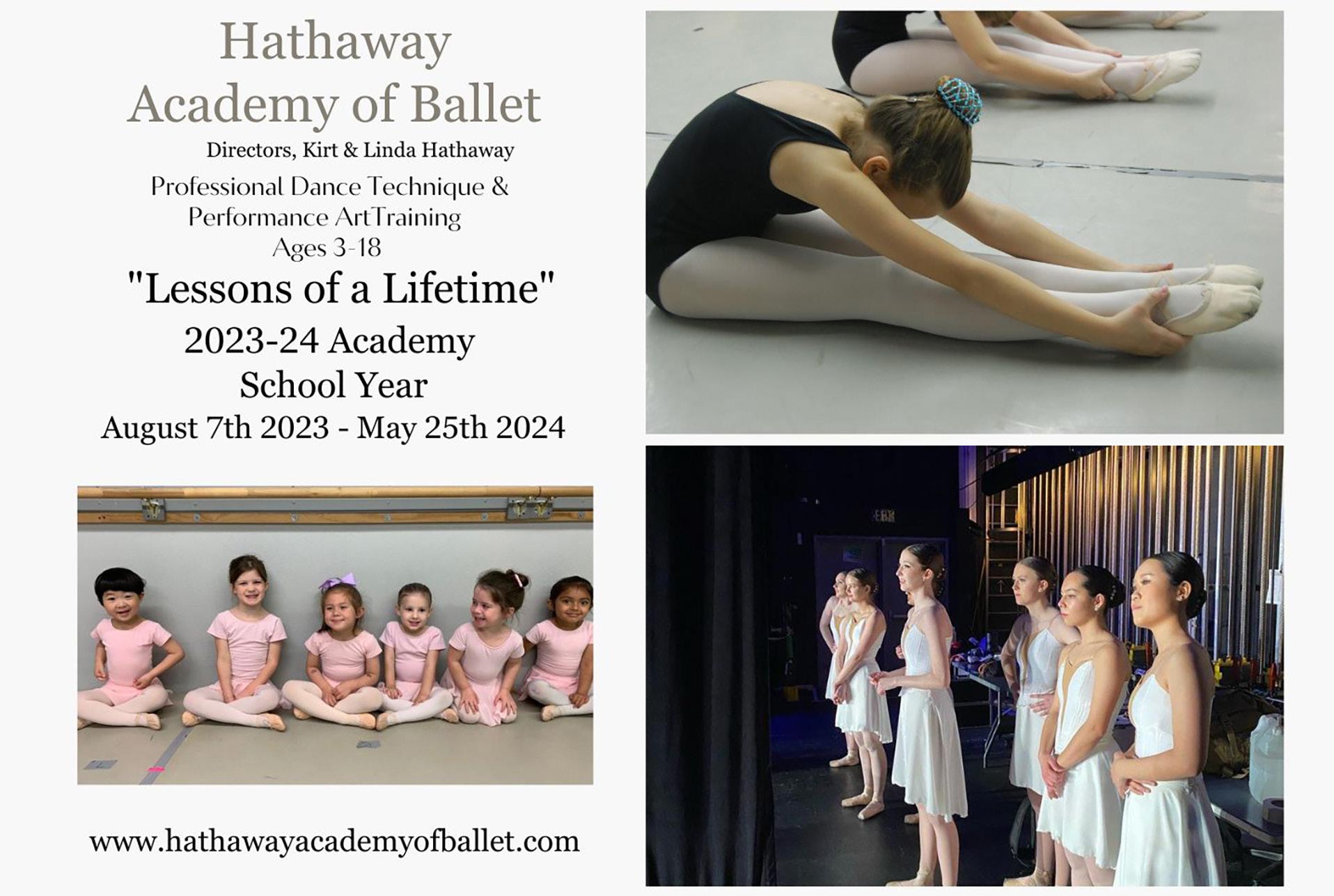
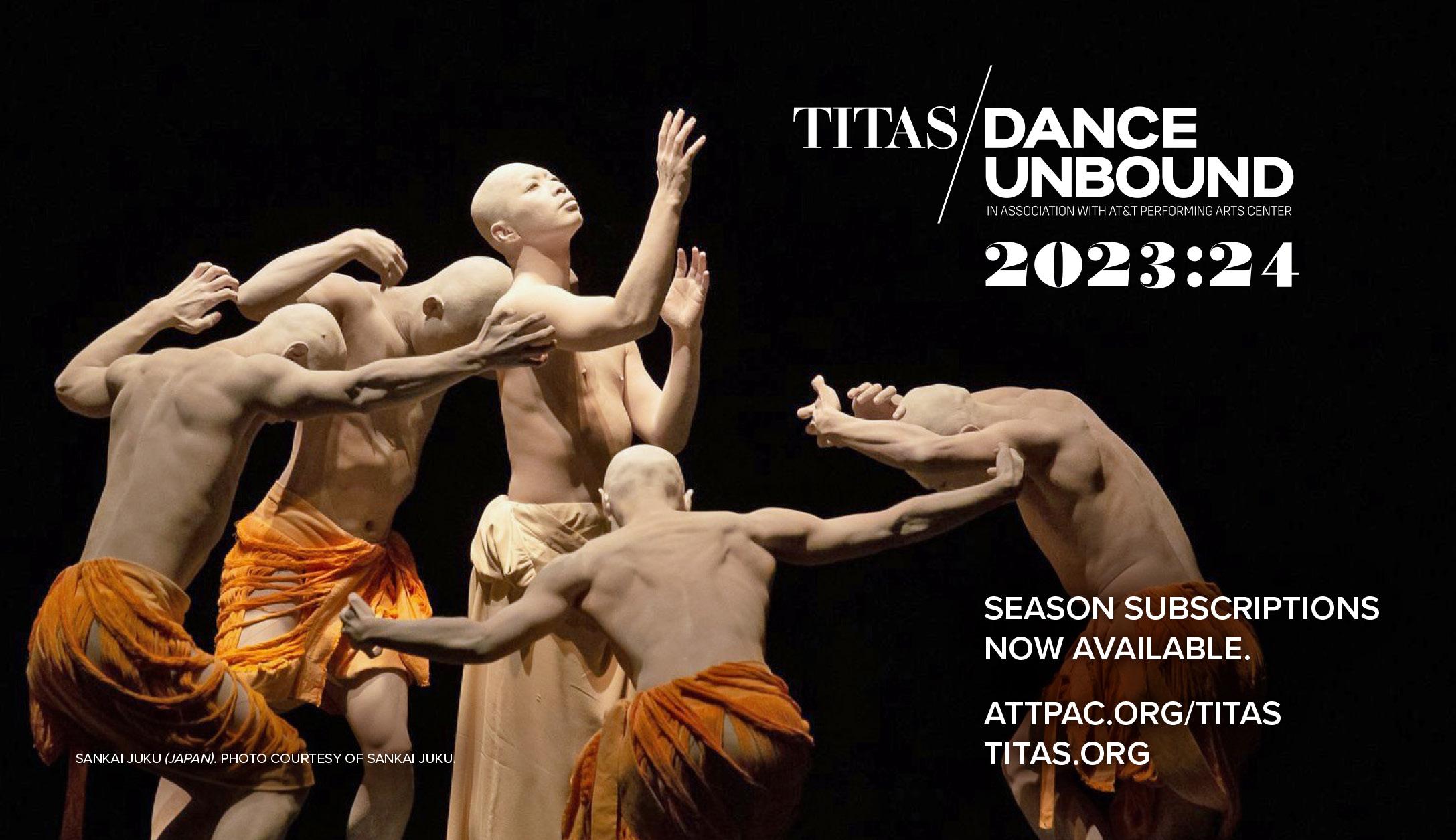
The Dallas Dance Council Charter
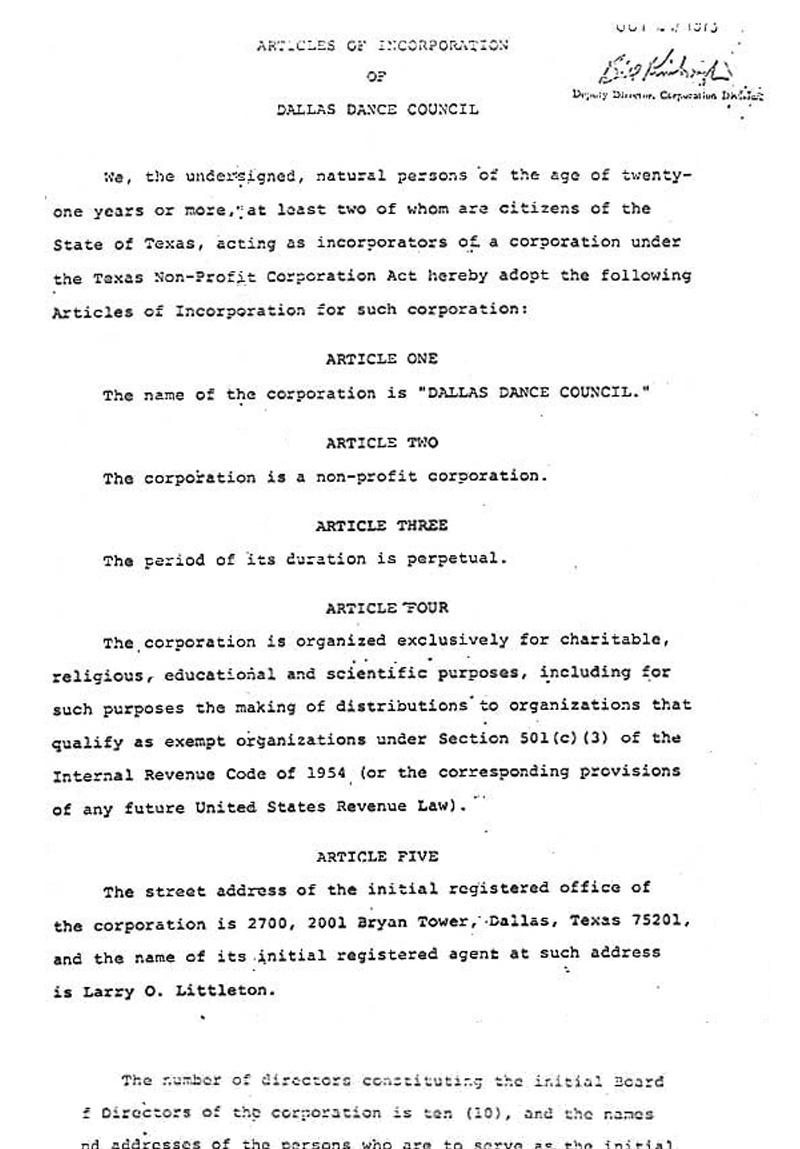
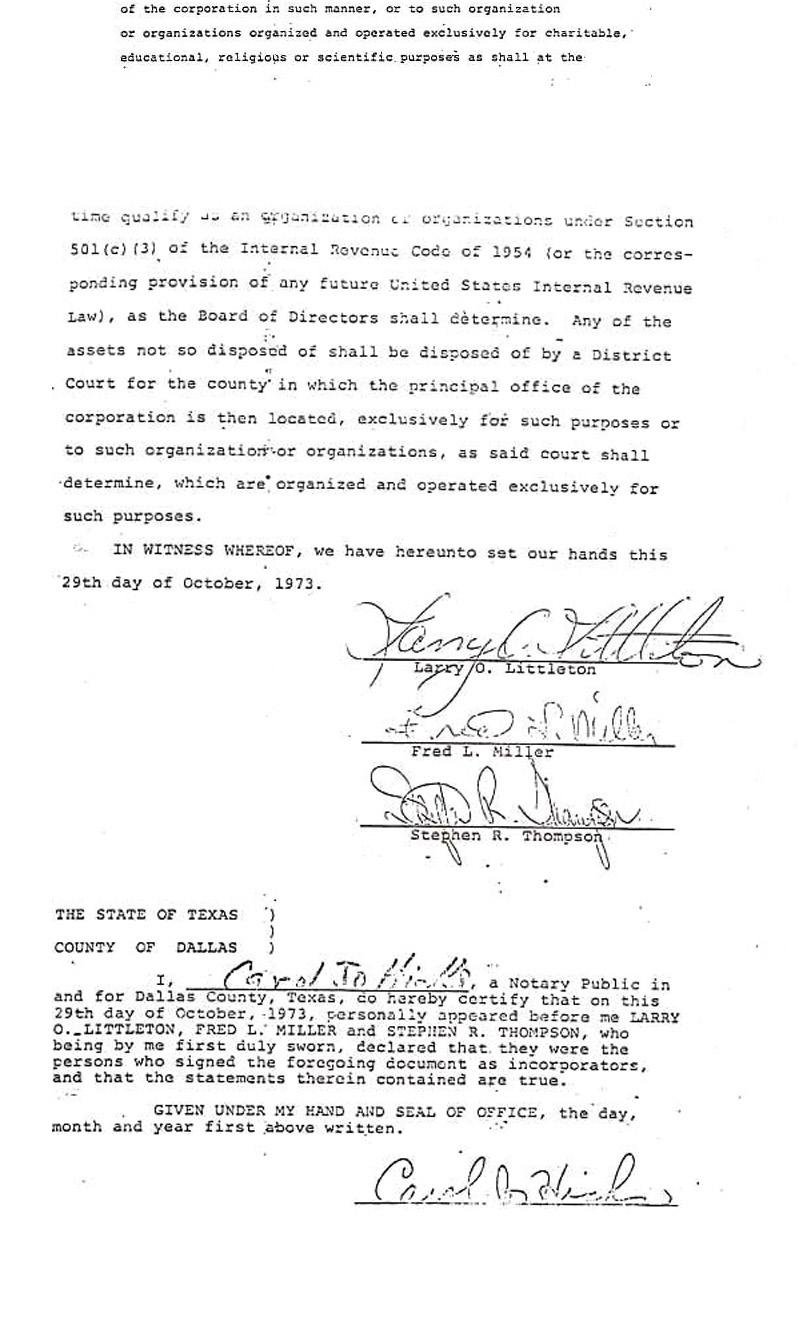
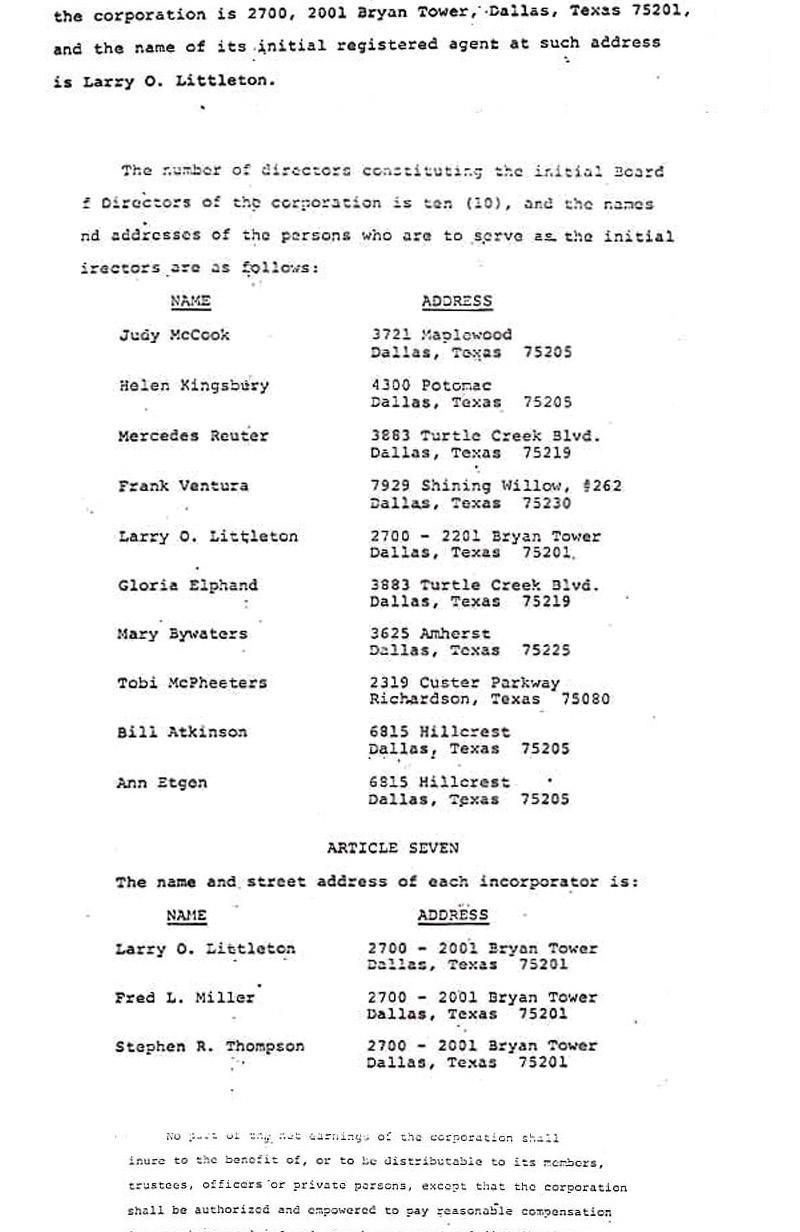
In 1973, the organization was formed as the Dallas Dance Council and became incorporated as a 501c3 in 1974. Reflecting its broader constituency and outreach, the Dallas Dance Council became the Dance Council in 1995. In 2009, the organization’s name was changed to Dance Council of North Texas (DCNT) to define its geographical origination for the national and international dance community. DCNT was initially organized by and continues to achieve its vision through a dedicated and energetic board of directors and volunteers. DCNT receives funding through its membership, affordable marketing resources offered to the dance community, individual donors, foundations, corporations, the City of Dallas Office of Arts & Culture, and the state agency, Texas Commission on the Arts.
Over the years Dance Council has sponsored and produced multiple programs ans services such as:

A Chance 2 Dance, Adaptive Dance, ArtsPark, Art And Stage, Curtain Call Dance Festival, Dallas Morning News Dance Festival, Dallas DancFest, Dallas Dance Film Festival, Dancers Network, Dance Council Honors, Dance Planet, Dancing at McCall Plaza, Heart 2 Heart, National Tap Dance Celebration, The Scholarship Program, Taste Dance Addison Style, Vitruvian Salsa Festival...
The ladies of early Dallas Civic Ballet and the founders of Dance Council of North Texas!
Clockwise: Lorraine Cranford, Mrs. (Lorine) Head, Natalie Skelton, Denise Brown, and Mary Bywaters (seated).

The early days of Dallas Civic Ballet, in a piece called “Dallas Divertissment”. Clockwise: Ann Etgin, Jurgen Pagels, Jerry Bywaters Cochran, Don Cater Cranford, Lorraine Cranford, and Bill Atkinson.
